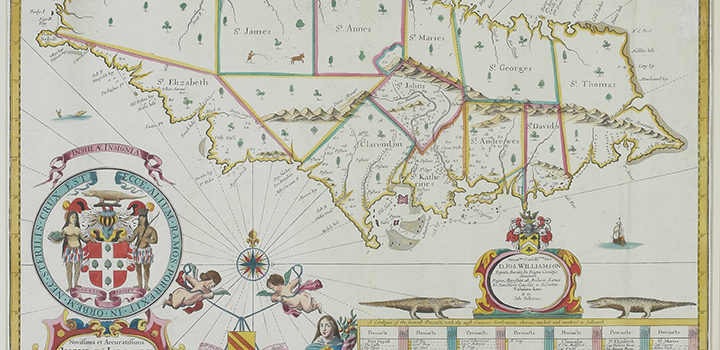Tragedy and chaos aboard the warship Gloucester
By: Communications

The Gloucester’s troubled early history, intertwining maritime heritage with national and global narratives, has been revealed by research from the University of East Anglia.
Between 1654 and 1656, the Gloucester warship played a pivotal role during Oliver Cromwell's campaign in the Caribbean known as the Western Design, where it contributed to assaults on the Spanish-held colonies of Hispaniola, Jamaica, and Colombia.
Based on extensive analysis of newly discovered documents, including diaries, letters, and wills, a new study by Dr Benjamin Redding, Senior Research Associate for UEA's Gloucester Project provides unparalleled insights into this critical period.
Almost thirty years later, the Gloucester sank on 6 May 1682 while the future King James II and VII was aboard, after running aground off the North Norfolk coast.
James survived, though 130-250 sailors and passengers lost their lives.
The wreck lay half-buried under the seabed until two Norfolk brothers, Julian and Lincoln Barnwell, found the wreck site in 2007 after a four-year search.
The latest revelations surrounding the Gloucester transform our understanding of this era in imperial military history.
Previously, the failed campaign’s worst impacts were attributed to the army, leaving naval forces seemingly untouched.
However, the new study shows that the ship’s crew endured similar hardships, as deaths and poor leadership impaired the expedition, underscoring the interconnectedness of these historical events.
The ship's tale, marked by tragedy, dissent, and courage, parallels its catastrophic later wreck off the Norfolk coast.
The Gloucester Project, supported by The Leverhulme Trust (2021-24), Is researching the warship’s career and times.
Led by UEA’s Prof Claire Jowitt, the project explores the intricate ties between seventeenth-century politics, religion, and maritime history, demonstrating their indelible interdependence.
Dr Benjamin Redding said: "Researching the Gloucester's early career shows that the ship is important across its whole history of service.
“Its role in The Western Design, and the many lives lost in the events, reflects the complexities of Britain's bellicose history as the nation sought to become a global power."
Central to this narrative is the captain of the Gloucester, Benjamin Blake, who’s assertive and impetuous persona, drove the ship's course in the Caribbean campaign.
His fervent approach clashed with Admiral William Goodsonn's caution, resulting in Blake’s dismissal and return to England in 1656 to prevent mutiny.
Beyond his convictions, Blake advocated for his crew's welfare, revealing the harsh conditions of life on board and the crew's unrest.
'The Western Design Revised: Death, Dissent, and Discontent on the Gloucester, 1654–1656' is published in The Historical Journal.
Related Articles

2025 – a year in research
The past twelve months have seen UEA researchers break new ground on everything from Magna Carta to the mating habits of jaguars in the Amazon. Join us as we take a look back at just some of 2025’s incredible stories, discoveries and expert insights.
Read more
Harvard Law School’s ‘copy’ of Magna Carta revealed as original
Researchers at UEA and Kings College London have discovered that a ‘copy’ of Magna Carta owned by Harvard Law School is in fact a rare original from 1300.
Read more
Innovation and Impact Awards now open for entries and nominations
The Innovation and Impact Awards are back for 2025 and looking to recognise and reward UEA’s most game changing staff, students, and graduates, and their collaborative work with partners outside the University.
Read more